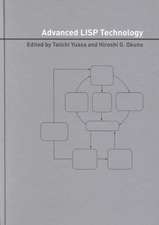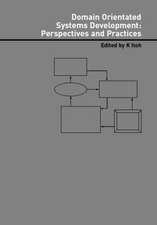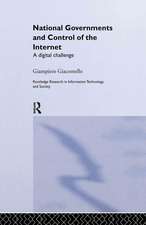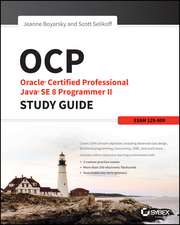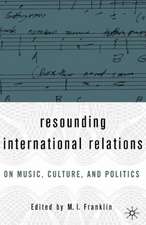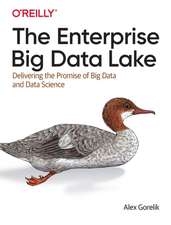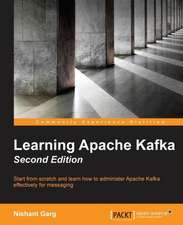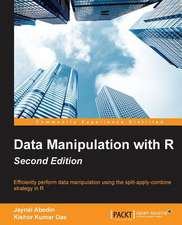Postcolonial Politics, The Internet and Everyday Life: Pacific Traversals Online: Routledge Advances in International Relations and Global Politics
Autor M. I. Franklinen Limba Engleză Paperback – 22 oct 2007
Critical of techno- and media-centric analyses of cyberspatial practices and power hierarchies, Franklin argues that a closer look at the content and communicative styles of these contemporary Pacific traversals suggest other Internet futures. These are visions of social media that can be more hospitable, culturally inclusive and economically equitable than those promulgated by both powerful commercial interests and state actors looking to take charge of the Internet ‘after Web 2.0’. The book will be of interest to students of international politics, media and communications, cultural studies, science and technology studies, anthropology and sociology interested in how successive waves of new media interact with shifting power relations at the intersection of politics, culture, and society.
First published in hardback in 2005.
| Toate formatele și edițiile | Preț | Express |
|---|---|---|
| Paperback (1) | 117.74 lei 6-8 săpt. | |
| Taylor & Francis – 22 oct 2007 | 117.74 lei 6-8 săpt. | |
| Hardback (1) | 355.58 lei 6-8 săpt. | |
| Taylor & Francis – 9 iun 2005 | 355.58 lei 6-8 săpt. |
Din seria Routledge Advances in International Relations and Global Politics
-
 Preț: 383.48 lei
Preț: 383.48 lei -
 Preț: 310.55 lei
Preț: 310.55 lei -
 Preț: 188.83 lei
Preț: 188.83 lei -
 Preț: 152.86 lei
Preț: 152.86 lei -
 Preț: 311.59 lei
Preț: 311.59 lei - 9%
 Preț: 1003.12 lei
Preț: 1003.12 lei -
 Preț: 317.91 lei
Preț: 317.91 lei - 8%
 Preț: 390.08 lei
Preț: 390.08 lei -
 Preț: 377.82 lei
Preț: 377.82 lei -
 Preț: 303.47 lei
Preț: 303.47 lei - 18%
 Preț: 1170.74 lei
Preț: 1170.74 lei - 18%
 Preț: 1051.55 lei
Preț: 1051.55 lei - 18%
 Preț: 1220.46 lei
Preț: 1220.46 lei - 28%
 Preț: 850.99 lei
Preț: 850.99 lei - 18%
 Preț: 1056.32 lei
Preț: 1056.32 lei - 18%
 Preț: 1053.57 lei
Preț: 1053.57 lei - 18%
 Preț: 1057.89 lei
Preț: 1057.89 lei - 18%
 Preț: 1056.32 lei
Preț: 1056.32 lei - 18%
 Preț: 1066.09 lei
Preț: 1066.09 lei - 18%
 Preț: 1062.26 lei
Preț: 1062.26 lei - 18%
 Preț: 1056.32 lei
Preț: 1056.32 lei - 15%
 Preț: 449.41 lei
Preț: 449.41 lei - 25%
 Preț: 300.01 lei
Preț: 300.01 lei - 18%
 Preț: 1167.36 lei
Preț: 1167.36 lei - 28%
 Preț: 820.56 lei
Preț: 820.56 lei - 18%
 Preț: 1060.87 lei
Preț: 1060.87 lei - 18%
 Preț: 1270.98 lei
Preț: 1270.98 lei - 18%
 Preț: 1167.71 lei
Preț: 1167.71 lei - 18%
 Preț: 1112.21 lei
Preț: 1112.21 lei - 18%
 Preț: 997.11 lei
Preț: 997.11 lei -
 Preț: 427.12 lei
Preț: 427.12 lei - 18%
 Preț: 1057.40 lei
Preț: 1057.40 lei -
 Preț: 355.58 lei
Preț: 355.58 lei - 18%
 Preț: 1057.75 lei
Preț: 1057.75 lei - 18%
 Preț: 1115.33 lei
Preț: 1115.33 lei - 18%
 Preț: 1052.89 lei
Preț: 1052.89 lei - 26%
 Preț: 850.37 lei
Preț: 850.37 lei -
 Preț: 389.38 lei
Preț: 389.38 lei - 18%
 Preț: 1120.55 lei
Preț: 1120.55 lei - 18%
 Preț: 1059.93 lei
Preț: 1059.93 lei - 18%
 Preț: 1059.84 lei
Preț: 1059.84 lei - 18%
 Preț: 951.96 lei
Preț: 951.96 lei - 18%
 Preț: 1058.79 lei
Preț: 1058.79 lei - 18%
 Preț: 1061.81 lei
Preț: 1061.81 lei - 48%
 Preț: 572.55 lei
Preț: 572.55 lei - 18%
 Preț: 1059.84 lei
Preț: 1059.84 lei - 18%
 Preț: 1000.27 lei
Preț: 1000.27 lei - 18%
 Preț: 1056.28 lei
Preț: 1056.28 lei - 18%
 Preț: 1057.75 lei
Preț: 1057.75 lei
Preț: 117.74 lei
Nou
Puncte Express: 177
Preț estimativ în valută:
22.53€ • 23.44$ • 18.60£
22.53€ • 23.44$ • 18.60£
Carte tipărită la comandă
Livrare economică 14-28 aprilie
Preluare comenzi: 021 569.72.76
Specificații
ISBN-13: 9780415459907
ISBN-10: 0415459907
Pagini: 308
Ilustrații: 2 b/w images, 3 tables and 2 line drawings
Dimensiuni: 156 x 234 x 17 mm
Greutate: 0.44 kg
Ediția:1
Editura: Taylor & Francis
Colecția Routledge
Seria Routledge Advances in International Relations and Global Politics
Locul publicării:Oxford, United Kingdom
ISBN-10: 0415459907
Pagini: 308
Ilustrații: 2 b/w images, 3 tables and 2 line drawings
Dimensiuni: 156 x 234 x 17 mm
Greutate: 0.44 kg
Ediția:1
Editura: Taylor & Francis
Colecția Routledge
Seria Routledge Advances in International Relations and Global Politics
Locul publicării:Oxford, United Kingdom
Public țintă
PostgraduateCuprins
1. Introduction 2. Marketing the Neoliberal Dream 3. Everyday Life Online 4. 'I’m Tired of Slaving Myself': Sex-gender Roles Revisited 5. 'A Play on the Royal Demons': Tongan Political Dissent Online 6. 'I Define My Own identity": Rearticulating 'Race', 'Ethnicity' and 'Culture' 7. 'Please Refrain From Using Capitals': Online Power Relations 8. Internet Research Praxis in Postcolonial Settings 9. Knowledge, Power and the Internet
Recenzii
'In this fascinating and important book, M.I. Franklin reveals that they are already present. Reflecting on her own contribution, Franklin expresses the hope to have made the initial opening in terms of other ways in which ICTs can be thought about, designed, and eventually used, by examining the practice of everyday life online (p. 232). She has succeeded in doing this and more. - J. Marshall Beier, McMaster University, Canada
'If culture means the ways people make sense of their place and time in the world, and if anthropology's distinctive contribution the study of such ways has been based on ethnography - meeting culture-makers on their own ground and terms - then this book must count as a pioneering work. It transports research to a field whose reality is in no way denied by calling it virtual. It is an inspiring example to follow, all the more remarkable because the author is "technically" not an anthropologist.'
- Johannes Fabian, Amsterdam School of Social Research, The Netherlands
'While other ethnographic studies of the internet are sensitive to global concerns, Franklin’s strength is that she brings together a politically-informed analysis of the ways in which the internet is implicated in globalisation with a very subtle, nuanced exploration of the everyday practices of internet use by an economically marginal group of people, namely Pacific Islanders.'
- Sally Wyatt, ASCoR, University of Amsterdam, The Netherlands
'No neat conclusions here, and nor should there be, but plenty of food for thought and, with a generous sprinkling of direct quotes - hilarious, furious, honest, wise, confronting and always insightful - a thoroughly enjoyable read.'
- Helen Lee, La Trobe University, Australia.
'Postcolonial Politics, The Internet, and Everyday Life represents scholarship of the future. That is, it takes seriously how a group of people usually not heard from in mainstream academia (the South Pacific diaspora) utilizes a contemporary means of communication (the Internet) to articulate and formulate a subject rarely discussed in liberal democratic theory (collective identity in a globalized, postsovereign world).'
- L.H.M. Ling, The New School, USA
'Through this methodologically unique exploration of translocal negotiations of identity and political agency, Franklin offers us new meanings of self and community in resistance to technostrategic trajectories and erasures. Likening this 'other' internet to the 'oceans within' Pacific Islander consciousness, she takes us to new "shorelines" of feminist postcolonial inquiry.'
- Anne Sisson Runyan, University of Cincinnati, USA
'If culture means the ways people make sense of their place and time in the world, and if anthropology's distinctive contribution the study of such ways has been based on ethnography - meeting culture-makers on their own ground and terms - then this book must count as a pioneering work. It transports research to a field whose reality is in no way denied by calling it virtual. It is an inspiring example to follow, all the more remarkable because the author is "technically" not an anthropologist.'
- Johannes Fabian, Amsterdam School of Social Research, The Netherlands
'While other ethnographic studies of the internet are sensitive to global concerns, Franklin’s strength is that she brings together a politically-informed analysis of the ways in which the internet is implicated in globalisation with a very subtle, nuanced exploration of the everyday practices of internet use by an economically marginal group of people, namely Pacific Islanders.'
- Sally Wyatt, ASCoR, University of Amsterdam, The Netherlands
'No neat conclusions here, and nor should there be, but plenty of food for thought and, with a generous sprinkling of direct quotes - hilarious, furious, honest, wise, confronting and always insightful - a thoroughly enjoyable read.'
- Helen Lee, La Trobe University, Australia.
'Postcolonial Politics, The Internet, and Everyday Life represents scholarship of the future. That is, it takes seriously how a group of people usually not heard from in mainstream academia (the South Pacific diaspora) utilizes a contemporary means of communication (the Internet) to articulate and formulate a subject rarely discussed in liberal democratic theory (collective identity in a globalized, postsovereign world).'
- L.H.M. Ling, The New School, USA
'Through this methodologically unique exploration of translocal negotiations of identity and political agency, Franklin offers us new meanings of self and community in resistance to technostrategic trajectories and erasures. Likening this 'other' internet to the 'oceans within' Pacific Islander consciousness, she takes us to new "shorelines" of feminist postcolonial inquiry.'
- Anne Sisson Runyan, University of Cincinnati, USA
Descriere
This book explores the technical, political economic and sociocultural implications of technological change. Using an international political economy approach, the author focuses on how the Internet is used by ethnic minorities to communicate.



